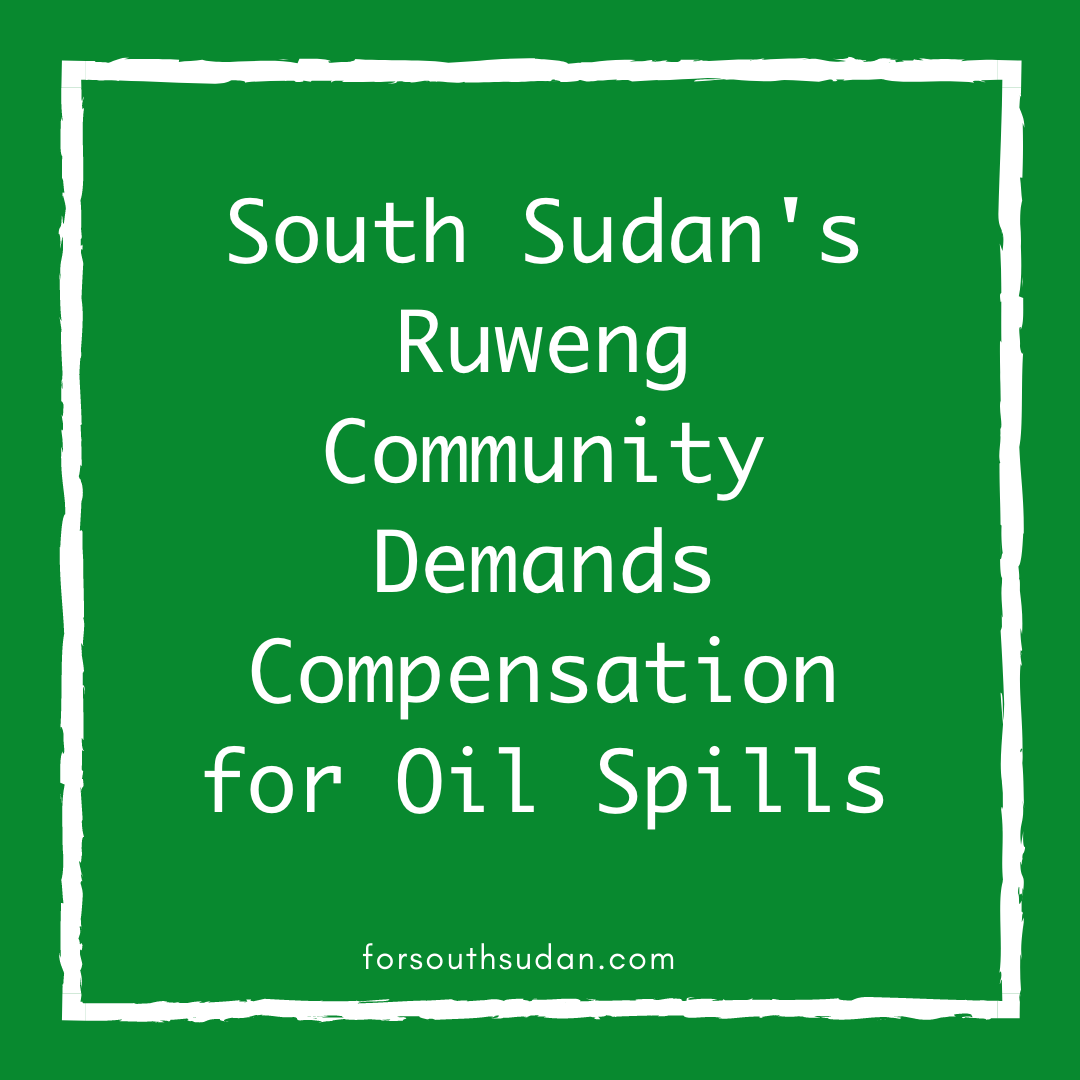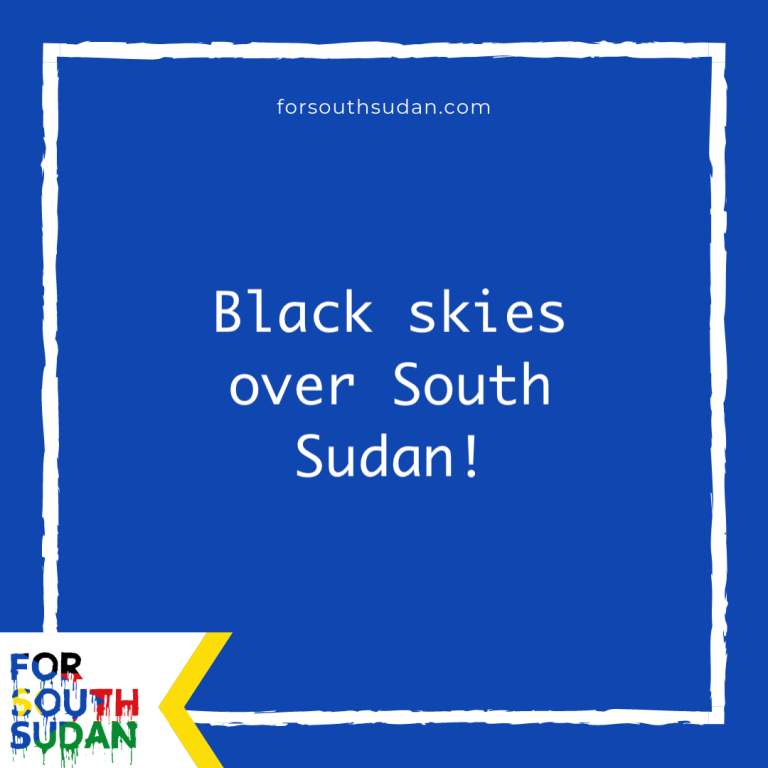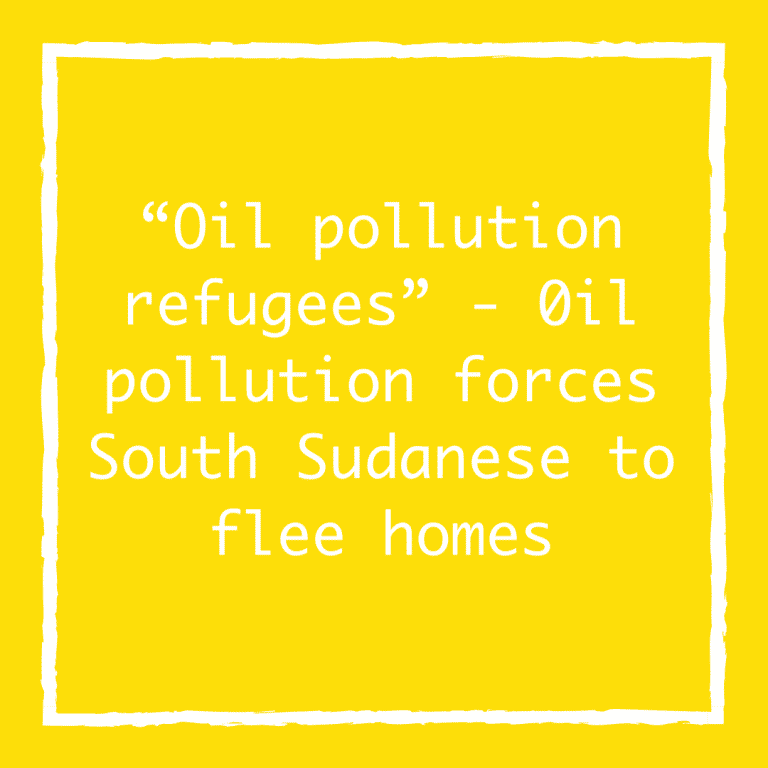By Viola Elias
February 27, 2020 11:06 AM

JUBA – Residents of South Sudan’s oil-rich Ruweng County have petitioned the country’s Supreme Court, demanding millions of dollars in compensation for oil spills that have polluted the environment.
Lawyers representing the Ruweng community filed the petition at the Supreme Court three weeks ago, following what they call repeated human rights violations by oil companies that fail to maintain their pipelines, which have burst numerous times, spilling crude oil into surrounding land and water.
The group says the pollution has caused irreparable harm in Ruweng, Northern Liech and Southern Liech states.
Residents say the oil leaks have caused deformities in newborns, children being born prematurely, and deaths.
Legal advocate Peter Ayai, executive director for the local human rights organization Advocates Without Borders, says the activities of Greater Pioneer Operating Company (GPOC), a consortium of oil companies owned by China, India, Malaysia and South Sudan, violated the rights of residents and their right to clean water.
“We are claiming compensation on behalf of the people of Ruweng state but for the time being we are talking about $500 million but it should have been more. We are going to amend the petition. These damages have been caused since 1999 and before the separation of South Sudan,” Ayei told VOA’s South Sudan in Focus.
Ruweng state lawyer Theji Dadwad Deng said GPOC has never performed an environmental assessment since oil explorations began in the area in 1998 and has failed to adhere to international standards while extracting oil in Ruweng. Deng said the oil consortium also failed to provide social services to local communities as it promised to do and is part of a written agreement with the community.
“For the past 21 years, the citizens of Ruweng did not receive any percentage from the oil, completely leave alone the social service which was supposed to be provided by the exploration companies in the area,” Deng told “South Sudan in Focus.”
Phillip Anyang, a legal advocate who filed two petitioners against GPOC at the Supreme Court this week, said company executives repeatedly failed to carry out their duties under the 2012 Petroleum Act which requires the consortium to protect residents’ lives and protect and preserve the surrounding land and water.
“We hope justice will take its course to the victims of Ruweng oil pollution, to the victims that have been displaced and those who have been affected by the oil pollution on the ground,” Anyang said.
Last year, governors of the greater Upper Nile region called for a review of all contracts signed with oil companies including those signed before South Sudan declared its independence in 2011.
Besides GPOC, South Sudan’s petroleum ministry and the state-owned Nile Petroleum Corporation (NilePet) are also named in the petition.
Akol Nyok Akol, executive secretary of the Petroleum Ministry, said in a text message his ministry is aware of the petition and will address it through an environmental audit which began last year and is still underway.
GPOC Vice President Majak Arop could not be reached for comment. His office refused requests for an interview.




